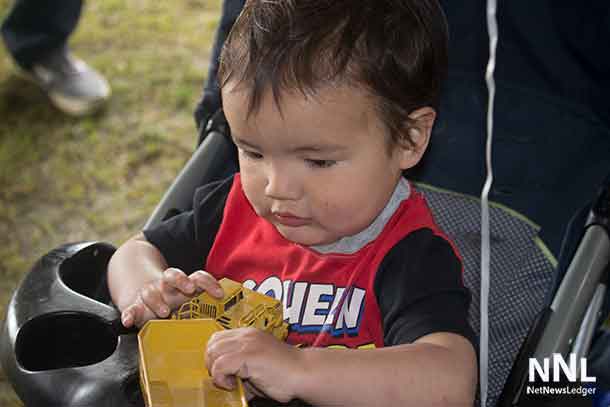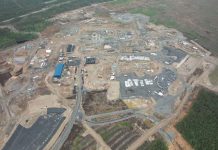Robinson-Superior Treaty and Fort William First Nation Territory, Thunder Bay, Ontario – BUSINESS – The Community Economic Development Commission in Thunder Bay released their mining strategy report earlier this month.
The Anishnawbe Business Professional Association (ABPA) President Jason Rasevych issued the following statement in response to the Thunder Bay Community Economic Development Commission (CEDC) Mining Readiness Strategy.
“The ABPA welcomes the CEDC’s focus on raising awareness of the anticipated growth of mineral extraction in Northwestern Ontario and the needs of transportation infrastructure, energy and transmission enhancements and human capital. However, we prefer a greater emphasis on increasing First Nations’ participation and consent throughout all stages of the mining life cycle from early exploration to mine closure. There is also a greater need for mining companies to work with First Nations far before the exploration stages to ensure that future mining projects align with First Nations’ long term community driven plans.
Industry, governments, and First Nations must collaborate to create a system that incubates indigenous participation in the mining supply chain to empower and support First Nation owned businesses. It must be recognized that supporting the Truth and Reconciliation Commission call to action #92 for corporations in Canada to adopt the United Nations of Declaration on the Rights of Indigenous Peoples as a reconciliation framework will result in greater certainty in the land base.
Too often, First Nation’s socio-economic interests are an afterthought, resulting in delays in mine permitting, regulatory processes and ultimately the social license of indigenous peoples. It must be acknowledged that the 15 proposed mining projects that are planned for the next decade are on the ancestral, inherent, customary, traditional lands of many First Nations in Northwestern Ontario and that their free, prior, informed consent will be required before any development proceeds. There is also constitutionally protected rights and Treaties that must be honoured to respect the indigenous peoples that have lived off the land since time immemorial.
First Nations require direct economic benefits in mining, and many are seeking a greater role in ownership of mines, power generation, and transmission projects to supply not only the mining site but also close the loop on legacy issues and their First Nation’s community needs. Every mining or infrastructure project on First Nations’ traditional lands needs to have an indigenous procurement component such as set asides and preferred contracting to ensure there is a local benefit for First Nations peoples and businesses.
The ABPA looks forward to continuing our work to close gaps across the mining procurement and supply chains so that First Nation businesses can receive the same level of support and opportunities as non-First Nation businesses.”
About the ABPA:
The Anishnawbe Business Professional Association (www.anishnawbebusiness.com) is a non-profit, member-based organization based in Thunder Bay, Ontario. ABPA serves the First Nation business community within the Treaty #3, Treaty#5, Treaty #9 and Robinson Huron and Superior Treaty Areas. The ABPA develops and expresses positions on business issues and other public issues relevant to First Nation business, on behalf of its members. They provide a forum for the First Nation business community to develop policies and programming which contribute to the socio-economic well-being and quality of life of First Nations peoples in Northern Ontario. They also serve non-First Nation businesses by providing information, guidance, and access to a wide-ranging network through events and sponsorship.






